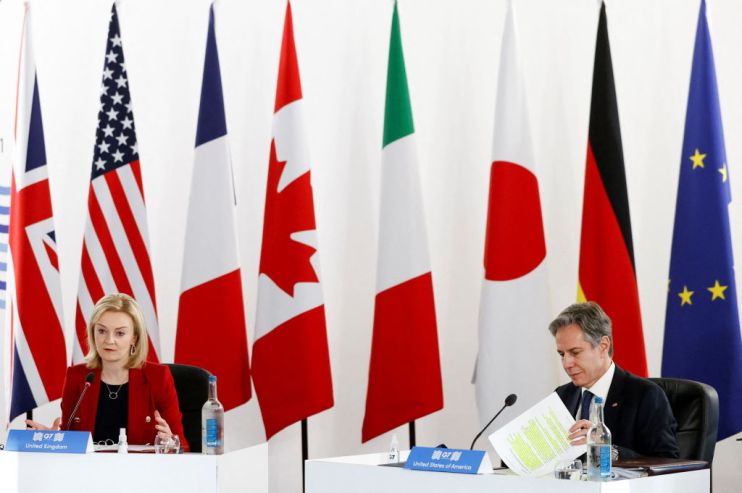California dreamin’ of post-Brexit trade deal, with a local twist

The political agenda over the last week or two has been rather full, so you could be forgiven for not having noticed that the minister for trade policy, Penny Mordaunt, has been on an epic tour of the United States, one of the longest ministerial visits in recent history. The Portsmouth North MP, who was in the cabinet for two years under Theresa May, has been engaging with state governments and the federal administration to promote British exports and bilateral partnerships across the Atlantic.
The US is a major economic partner for the UK. America buys nearly half of its imported business services (£17bn of £45bn) from us, and a third of its architectural, scientific and other services (£2bn of £6.5bn). The ministerial visit resulted in agreements to process memoranda of understanding with four states—Georgia, Tennessee, South Carolina and Oklahoma. Mordaunt was the first UK minister ever to visit that last state.
The Department for International Trade is also promoting regional partnerships between cities and regions in the UK and American counterparts: Teesside (currently brimming with investment under Tees Valley Mayor Ben Houchen) is talking to Oklahoma, and Manchester is clasping hands with Texas.
Critics will rightly point out that none of this constitutes a free trade agreement with the United States, which remains one of the principal goals of UK trade policy. But there is more to global economic and investment policy than the headline-grabbing international FTAs.
It is a thought worth exploring. The US is politically as fractured and divided as it has been since the Civil War: California would have the world’s fifth-largest economy if it were a country, but its politics and culture seem to have little in common with the deep red states of the Rust Belt. Texas would rank tenth in the same calculation. It surely makes sense, therefore, for our trade policy to have a degree of nuance and depth.
If ministerial hand-shaking and shoe leather can foster partnerships and cooperation with state-level governments, these are not footling regions or economies: they are every bit as important as independent governments with whom we also seek agreements. Ministerial discussions with the National Association of State Departments of Agriculture and the Cattlemen’s Association are important milestones in opening US markets to British produce and expertise.
The support of state governors and administrations, as well as US national organisations, is no small thing as we try to conclude a broader free trade agreement with Washington. Politicians are, after all, servants of their electorates, and pressure can come from beneath just as well as from outside.
After years of tensions, the “Special Relationship” is not as special as we would like to think, and the US’s “Pivot to Asia” has done it no great favours. Nor, many will argue, has Brexit. But there is a danger in believing that we are bit players to the Americans now.
As an Anglophone country, a permanent member of the UN Security Council, a founding member of NATO (and one of the few to reach the 2 per cent-of-GDP spending commitment) and the sixth-biggest economy in the world, we remain important allies for Washington, politically, economically and militarily. We have clout, and Brexit has not seen the collapse of London as a financial and commercial centre that some Remainers foretold.
The narrative of Global Britain, if the government can tell it with skill and confidence, is one which resonates with core American ideologies. We are a nation finding a new place for ourselves in the world, and we should be emphasising notions like flexibility, innovation and freedom.
We have a burgeoning tech sector, for example, and are talked of as having “leadership status” alongside Silicon Valley by industry insiders. We have four of the top 10 universities in the world, and a cultural footprint that is vastly disproportionate to our population. In short, we talk the same language as the Americans, and we should not be bashful supplicants.
There are clearly hard yards ahead before we finalise our post-Brexit trading partnership with the US. But widening our audience, talking to people beyond the Beltway and going local may prove to be vital spadework. Don’t think that people aren’t listening.